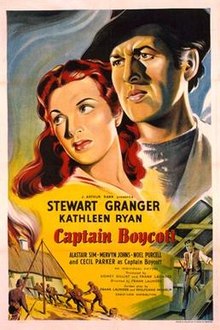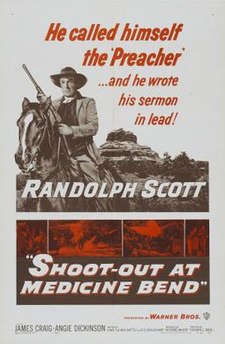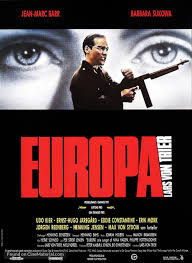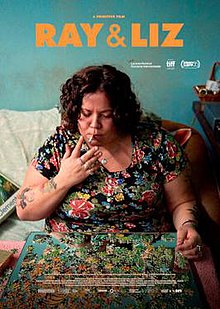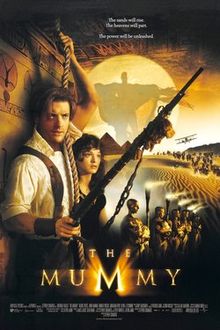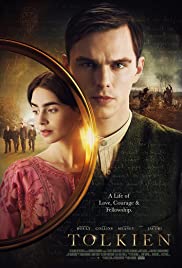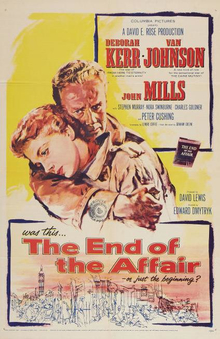
Trust is a variable quality. London during World War 2. Novelist Maurice Bendrix (Van Johnson) meets Sarah Miles (Deborah Kerr) the wife of civil servant Henry Miles (Peter Cushing) at their sherry party. He is asking Henry for information to help with his next book. Maurice is intrigued by Sarah after he sees her kissing another man. They become lovers that night at his hotel. After his rooms are bombed when they are together there, she ends their relationship and he suffers from the delayed shock from the bombing and from her ending the affair. After their break-up and the end of the war, Bendrix encounters Henry, who invites him for a drink at his home, especially since Sarah is out. Henry confides that he suspects Sarah is unfaithful and has looked into engaging a private investigator, but then decides against it. Sarah returns home before Bendrix leaves and is curt with him. Bendrix follows through with hiring a private detective agency on his own account. They come across information which suggests that Sarah is being unfaithful, which Bendrix shares with Henry in revenge. Bendrix then obtains Sarah’s diary via the private investigator Albert Parkis (John Mills) which reveals that Sarah is not having an affair and that she promised God to give Bendrix up if he was spared death in the bombing. Then they meet again … I’ve learned that you must pray like you make love – with everything you have. A deeply felt narrative revolving around love, sex and religious belief sounds like a melodramatic quagmire but Lenore Coffee’s adaptation of Graham Greene’s 1951 semi-autobiographical novel is a rich textured work with impressive performances by the entire cast. Kerr and Johnson might be perceived to be something of a mismatch but that’s the point of the story: he is fated to forever misunderstand her and as he tries to navigate his way through her complex emotions and her deals with God, he responds with just one emotion – jealousy. His unruly misunderstanding in a world of good manners and looking the other way means he flails hopelessly while we are then persuaded of her beliefs via her diary, the contents of which dominate the film’s second half, leading him to regret his desire for revenge. Love doesn’t end just because we don’t see each other. The ensemble is well presented and their individual big moments are sketches of superb characterisation, Mills’ pride in his snooping a particular highlight. It’s extraordinarily well done, very touching and filled with moments of truth which never fail to hit home in a story that is cunningly managed and beautifully tempered with empathy. Kerr is simply great. Directed by Edward Dmytryk. The ‘not done’ things are done every day. I’ve done most of them myself
